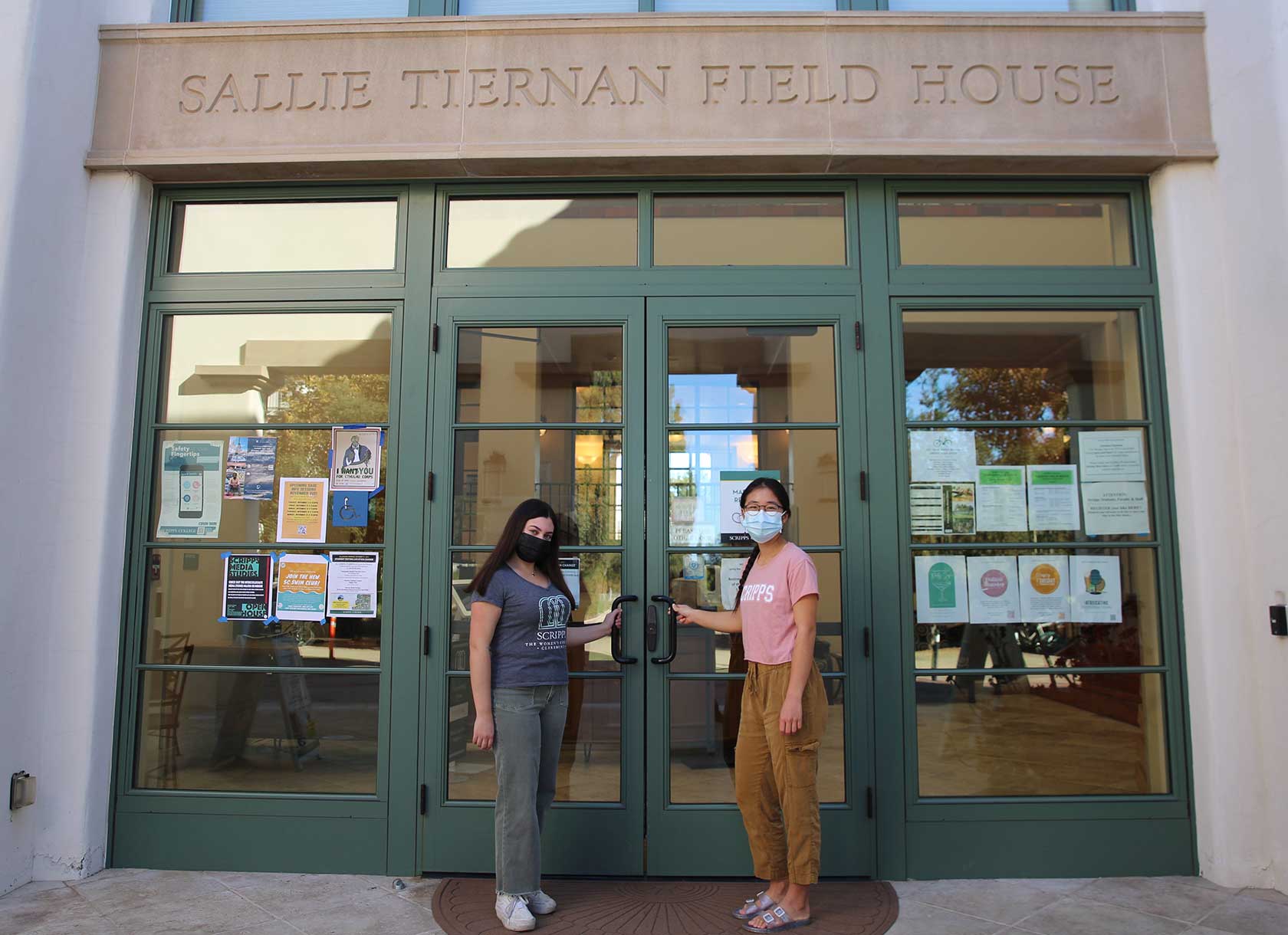By Lauren Mar ’25

Standing tall on the east edge of Scripps’ campus, the Sallie Tiernan Field House is at the center of the College’s commitment to health and wellness. Tiernan offers a holistic range of services to Scripps students, such as multi-purpose studios, group fitness classes, a pool, and a new student-designed wellness room. One of Tiernan’s most notable services is its Peer Health Educators program, developed by a group of student leaders committed to promoting mental and physical wellbeing.
“The Peer Health Educators are the faces of health and wellness advocacy on campus,” says Lisette De La Trinidad Alvarado, associate director of health and wellness. “For students to hear from a peer, and know that they are practicing these methods, is more impactful and resonates with students in a different way from the administration.”
The four Peer Health Educators each specialize in one dimension of wellness, including mental health and stress management, nutrition, sexual and reproductive health, or alcohol, tobacco, and other drug use (ATOD).
As part of her initiatives focusing on mental health and stress management, Peer Health Educator Eliza Kornfeld ’23 runs the weekly “Destress Thursdays” in which she highlights activities such as DIY body scrubs, knitting, and watercolor painting in step-by-step videos that students can follow. In these videos, Kornfeld also explains how the activity can lower stress and anxiety and elaborates on the scientific explanation in Tiernan’s weekly newsletter.
“Essentially, we’re turning scientifically proven ways to reduce stress into relaxing and fun activities,” says Kornfeld. “My hope is that students take time to rest and take care of themselves, and ‘Destress Thursday’ is the perfect way to do that.”
Meanwhile, ATOD Peer Health Educator Sabrina Lieu ’22 runs a podcast called “Intoxicating Conversations”, found on Instagram and Spotify, where she hosts students and professors as guest speakers to discuss the different aspects of ATOD. Such topics include how cannabis can affect students’ academic performance and the party culture at Scripps.
Both Kornfeld and Lieu plan to roll out more in-person initiatives during the year, such as a Halloween-themed “Destress Thursday”’ and a Party Safe campaign to hand out Halloween Party Kits of water, snacks, and resources, and to promote protective behaviors and harm-reduction methods of high-risk drinking. In addition to allowing for more activities, Scripps’ transition back to campus from distanced learning also emphasizes the importance of mental and physical wellbeing now more than ever.
“When there’s so much going on with school and life, it’s really easy for me to let the needs of my mind slip to the very end of my to-do list,” Lieu says. “But I try to remind myself that my mental wellness means everything; none of what I do every day would be possible without it.”
Deb Gisvold, assistant dean and director of Tiernan Field House, echoes this sentiment.
“There are so many stressors that impact our daily lives and all of these things come to a head,” says Gisvold. “It’s really important to think and talk about mental health. [Peer Health Educators] help provide students with the ‘wrap-around’ care that they need—whether that takes form in meditation, working out, or going outside—to cope and develop healthy behaviors for the future.”

